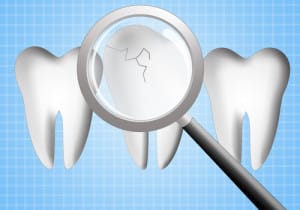 Bruxism, or teeth grinding, refers to the constant grinding of the teeth or clenching of the jaw. A widespread disorder that affects both children and adults, this issue can lead to damaged teeth and a number of other oral health concerns. Why do we grind our teeth? What can we do to stop?
Bruxism, or teeth grinding, refers to the constant grinding of the teeth or clenching of the jaw. A widespread disorder that affects both children and adults, this issue can lead to damaged teeth and a number of other oral health concerns. Why do we grind our teeth? What can we do to stop?
What Causes Bruxism?
Why do people grind their teeth habitually? Common causes include:
- Damaged teeth
- Missing teeth
- Malocclusion
- Trauma to the jaw or face
- Stress
Treating the problem means understanding the causes. From there, the doctor can recommend the most appropriate treatment options.
Common Warning Signs
In many cases a person may only grind his/her teeth during the night. If you only experience bruxism episodes while sleeping, how do you know if you need treatment? Common symptoms to watch for during the day include:
- Headaches
- Earaches
- Sensitive teeth or toothaches
- Jaw pain
If any of these symptoms sound familiar, then schedule an appointment with a dental professional. Otherwise, the continued pressure from teeth grinding will wear down your teeth or cause them to chip or crack. You can then experience a heightened risk of cavities, dental infection, or potentially the loss of one or more teeth.
How to Stop Grinding Your Teeth
First, you can take steps to alleviate the stress in your daily life. Otherwise, the dentist may buildup lost tooth structure or address malocclusion with the use of dental bonding or a dental crown. In many cases the doctor will suggest an oral appliance. The device looks similar to a nightguard and is worn while sleeping. The device places a barrier between the upper and lower teeth to stop further damage from grinding episodes. The device can also reposition the jaw to ease any tension that might be behind your bruxism issues.
